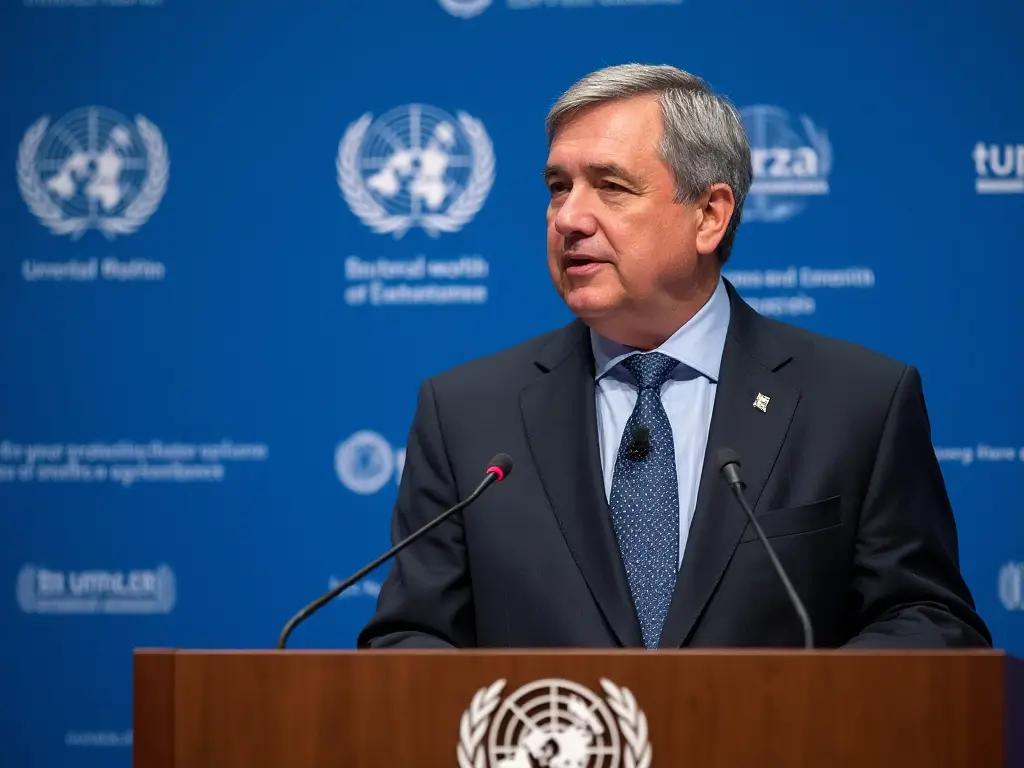UN Secretary-General António Guterres Calls for Global Cooperation to Address AI Risks to Democracy

UN Secretary-General António Guterres has issued a stark warning about the potential dangers of unchecked artificial intelligence (AI) to democratic systems. Speaking at an event, Guterres emphasized that the unregulated proliferation of AI technologies could destabilize democracies by spreading disinformation, fueling hate speech, and manipulating public opinion through sophisticated deepfakes.

Impact on Democratic Freedoms
According to Guterres, AI, if not governed effectively, poses a substantial threat to democratic freedoms and civic spaces. The improper use of AI can amplify existing societal divisions, intensify polarization, and undermine the principles that democracy stands for. Therefore, the importance of establishing robust regulatory frameworks and governance mechanisms cannot be overstated.
Harnessing AI for Positive Outcomes
Despite the potential risks, Guterres also acknowledged the significant positive role AI can play in democratic societies. If appropriately managed, AI technologies can enhance public participation, promote equality, and contribute measurably to human development. The challenge, therefore, lies in striking a balance where the benefits of AI are maximized while its risks are mitigated.
Global Cooperation and Effective Governance
On the International Day of Democracy, commemorated on September 15, Guterres highlighted the need for global cooperation to achieve effective governance of AI. He underscored the necessity of a united, comprehensive approach involving international, national, and local stakeholders. The goal is to establish governance frameworks that prevent misuse while promoting equitable use of AI technologies.
In alignment with these goals, the creation of the AI Advisory Body was announced. This body aims to gather global expertise from various sectors to provide informed recommendations on governance and regulatory issues surrounding AI.
International Agreements and Future Actions
To bolster these efforts, 28 countries and the European Union have agreed to the Bletchley Declaration on AI safety, reiterating the urgency of international cooperation in managing AI risks. This international consensus marks a significant step towards a coordinated approach to mitigate AI’s negative impacts.
Looking forward, the upcoming Summit of the Future is set to serve as a crucial platform for discussions on AI governance. It presents an opportunity for nations to explore ways to ensure AI is used to support sustainable development, thereby benefiting humanity equitably and safely.
In conclusion, as technology advances rapidly, the warnings by Secretary-General Guterres come at a critical time. There is a collective responsibility to ensure that AI developments contribute positively to society, reinforcing democratic values and addressing global challenges effectively.

